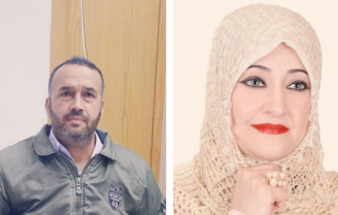-
The Resurgence of ISIL in Iraq And Syria

In December 2017, Iraq’s Prime Minister officially announced the liberation of the city of Mosul from the Islamic State of Iraq and the Levant (ISIL). In March 2019, the Syrian Democratic Forces (SDF) declared the total defeat of ISIS after taking control of its last stronghold in the town of Baghuz in Eastern Syria. However, after both decisive victories, ISIS is back again.
ISIS operations in Iraq and Syria have enlarged significantly during 2020. It was a demonstration that ISIL is not totally over yet. The resurgence of ISIS in Iraq and Syria has internal and external dimensions and connotations. This phenomenon cannot be attributed only to some of ISIS movable remnants or to its sleeper cells. It is something systematic and linked to the agendas and volitions of some regional states.
Since the emergence of ISIL in 2014 in the city of Mosul in northern Iraq, there was an implicit relationship between Turkey and ISIL at the intelligence level. This was very stark in the comedian play presented by Turkish intelligence and ISIL together in June 2014 in the city of Mosul. In June 2014, ISIL alleged that it detained 49 Turkish people who were working with the Turkish consulate in Mosul. After 100 days, ISIL released all of them and when they came back home, their appearance was suggesting that they were on a tour, not kidnapped. Meanwhile, they were the only ones who survived after being captured by ISIS!
Since then, whenever the pressure on ISIS in Syria and Iraq intensified by the international coalition and local allies, Turkey was engaged in counteractivities aiming at relieving the pressure on ISIS. This is what happened in October 2019 when Turkey and its backed-Syrian militants invaded two large areas in north and north east Syria controlled by the Kurdish-led SDF. The assault occurred in the wake of the decisive victory by the American-led international coalition and its local partner SDF against the last ISIS stronghold in Syria.
What is striking here is that all the Turkish military operations that took place on the Syrian lands since 2014 were primarily targeting the Kurdish fighters who were and are still fighting ISIS. Every military victory that Turkey had against the Kurdish fighters was in favour of ISIS. In other words, every loss the Kurdish fighters received during their asymmetric battles with Turkey was considered a victory for ISIS and a revival of its activities.
Dozens of ISIS detainees fled from a camp in north-eastern Syria, which was under the control of SDF as a result of the Turkish attack in October 2019. Many of SDF were forced to postpone fighting against ISIS and started fighting the Turkish occupier instead. Thus, ISIS once again was able to hold out and survive after Turkey eased the pressure on it.
It is very difficult, if not impossible, to eliminate ISIS as long as there are states such as Turkey and Qatar supporting and financing terrorism. If U.S and EU are really interested in fighting terrorism in the Middle East and North Africa, then, Turkey and Qatar must inevitably be held accountable, punished, and deterred. Failure to do so, would put the credibility of fighting terrorism at the stake, and turn it into mere allegations with the aim of propaganda and misleading. In addition, that Turkey will continue to use terrorism against EU, as happened recently in France and Austria. The eradication of the roots of ISIS in the Middle East and North Africa must take place in Ankara and Doha, not in Iraq and Syria.

Jwan Dibo
You May Also Like
Popular Posts
Caricature
BENEFIT AGM approves 10%...
- March 27, 2025
BENEFIT, the Kingdom’s innovator and leading company in Fintech and electronic financial transactions service, held its Annual General Meeting (AGM) at the company’s headquarters in the Seef District.
During the meeting, shareholders approved all items listed on the agenda, including the ratification of the minutes of the previous AGM held on 26 March 2024. The session reviewed and approved the Board’s Annual Report on the company’s activities and financial performance for the fiscal year ended 31 December 2024, and the shareholders expressed their satisfaction with the company’s operational and financial results during the reporting period.
The meeting also reviewed the Independent External Auditor’s Report on the company’s consolidated financial statements for the year ended 31 December 2024. Subsequently, the shareholders approved the audited financial statements for the fiscal year. Based on the Board’s recommendation, the shareholders approved the distribution of a cash dividend equivalent to 10% of the paid-up share capital.
Furthermore, the shareholders endorsed the allocation of a total amount of BD 172,500 as remuneration to the members of the Board for the year ended 31 December 2024, subject to prior clearance by related authorities.
The extension of the current composition of the Board was approved, which includes ten members and one CBB observer, for a further six-month term, expiring in September 2025, pending no objection from the CBB.
The meeting reviewed and approved the Corporate Governance Report for 2024, which affirmed the company’s full compliance with the corporate governance directives issued by the CBB and other applicable regulatory frameworks. The AGM absolved the Board Members of liability for any of their actions during the year ending on 31st December 2024, in accordance with the Commercial Companies Law.
In alignment with regulatory requirements, the session approved the reappointment of Ernst & Young (EY) as the company’s External Auditors for the fiscal year 2025, covering both the parent company and its subsidiaries—Sinnad and Bahrain FinTech Bay. The Board was authorised to determine the external auditors’ professional fees, subject to approval from the CBB, and the meeting concluded with a discussion of any additional issues as per Article (207) of the Commercial Companies Law.
Speaking on the company’s performance, Mr. Mohamed Al Bastaki, Chairman BENEFIT , stated: “In terms of the financial results for 2024, I am pleased to say that the year gone by has also been proved to be a success in delivering tangible results. Growth rate for 2024 was 19 per cent. Revenue for the year was BD 17 M (US$ 45.3 Million) and net profit was 2 Million ($ 5.3 Million).
Mr. Al Bastaki also announced that the Board had formally adopted a new three-year strategic roadmap to commence in 2025. The strategy encompasses a phased international expansion, optimisation of internal operations, enhanced revenue diversification, long-term sustainability initiatives, and the advancement of innovation and digital transformation initiatives across all service lines.
“I extend my sincere appreciation to the CBB for its continued support of BENEFIT and its pivotal role in fostering a stable and progressive regulatory environment for the Kingdom’s banking and financial sector—an environment that has significantly reinforced Bahrain’s standing as a leading financial hub in the region,” said Mr. Al Bastaki. “I would also like to thank our partner banks and valued customers for their trust, and our shareholders for their ongoing encouragement. The achievements of 2024 set a strong precedent, and I am confident they will serve as a foundation for yet another successful and impactful year ahead.”
Chief Executive of BENEFIT; Mr. Abdulwahed AlJanahi commented, “The year 2024 represented another pivotal chapter in BENEFIT ’s evolution. We achieved substantial progress in advancing our digital strategy across multiple sectors, while reinforcing our long-term commitment to the development of Bahrain’s financial services and payments landscape. Throughout the year, we remained firmly aligned with our objective of delivering measurable value to our shareholders, strategic partners, and customers. At the same time, we continued to play an active role in enabling Bahrain’s digital economy by introducing innovative solutions and service enhancements that directly address market needs and future opportunities.”
Mr. AlJanahi affirmed that BENEFIT has successfully developed a robust and well-integrated payment network that connects individuals and businesses across Bahrain, accelerating the adoption of emerging technologies in the banking and financial services sector and reinforcing Bahrain’s position as a growing fintech hub, and added, “Our achievements of the past year reflect a long-term vision to establish a resilient electronic payment infrastructure that supports the Kingdom’s digital economy. Key developments in 2024 included the implementation of central authentication for open banking via BENEFIT Pay”
Mr. AlJanahi concluded by thanking the Board for its strategic direction, the company’s staff for their continued dedication, and the Central Bank of Bahrain, member banks, and shareholders for their valuable partnership and confidence in the company’s long-term vision.
opinion
Report
ads
Newsletter
Subscribe to our mailing list to get the new updates!






















